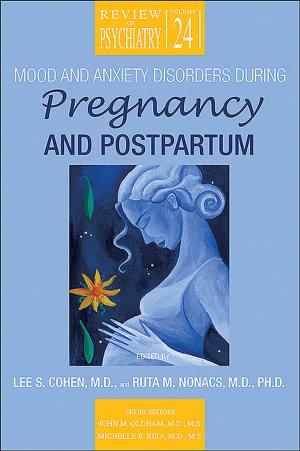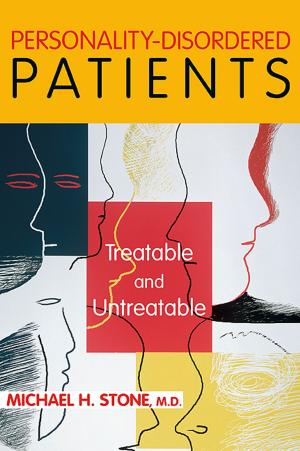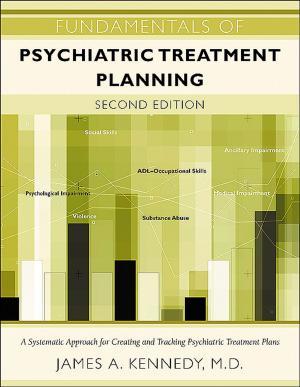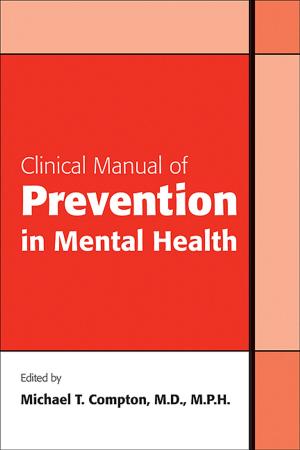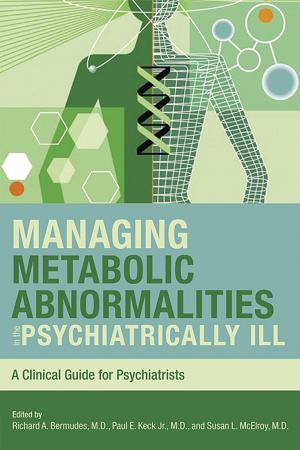Psychoneuroendocrinology
The Scientific Basis of Clinical Practice
Nonfiction, Health & Well Being, Medical, Specialties, Psychiatry| Author: | ISBN: | 9781585627578 | |
| Publisher: | American Psychiatric Publishing | Publication: | August 13, 2008 |
| Imprint: | American Psychiatric Association Publishing | Language: | English |
| Author: | |
| ISBN: | 9781585627578 |
| Publisher: | American Psychiatric Publishing |
| Publication: | August 13, 2008 |
| Imprint: | American Psychiatric Association Publishing |
| Language: | English |
The mind-body connection is one of the hottest topics in medicine today, documented by enormous amounts of data regarding hormone effects on the brain and behavior.
Yet it is only now -- with the debut of this thought-provoking volume -- that we find an up-to-date, sophisticated reference that focuses on the clinical relevance of behavioral endocrinology and is written for practicing clinicians and researchers.
This wide-ranging volume shows how the principles and emerging findings of psychoneuroendocrinology can inform modern clinical practice and lead to new breakthroughs in future science and practice. Here, leading authorities -- internationally respected researchers and practicing clinicians -- review empirical findings in their areas of expertise, highlight the clinical significance of these findings, and provide, wherever appropriate, clinical guidelines for the management of patients.
Beginning with a lively history of psychoneuroendocrinology (including its many false starts), this book continues on to discussions of the hypothalamic-pituitary-adrenal axis hormone system, the gonadal hormone system, and the thyroid hormone system from each of the three paths generally used for psychoneuroendocrinological investigation: Alterations in endogenous hormone levels observed in primary psychiatric illness Psychiatric concomitants or sequelae of hormonal dysregulation in primary endocrinologic illness Behavioral effects of exogenously administered hormones or hormone antagonists (both the study of the side effects of hormonal medications and the use of hormones and hormone antagonists as psychotropic medications)
An unmatched diversity of topics reveals the full breadth and depth of this volume: diabetes mellitus, corticosteroid effects on mood and cognition, Cushing's syndrome and Addison's disease, oral contraceptives and estrogen replacement therapy, psychiatric illness associated with the menstrual cycle and perimenopause, postpartum behavioral changes, anabolic/androgenic steroid use, and a thorough review of thyroid function in psychiatric disorders.
Particularly fascinating are sections on the role of neuropeptides and hypothalamic-releasing factors in psychiatric illness, the use of laboratory tests and imaging procedures in evaluating hormonal function in psychiatric patients, the place of newer "alternative" hormonal medications such as melatonin and DHEA in therapeutics, and a provocative and compelling final chapter on the role stress plays in precipitating illness.
Designed for both clinician and researcher-scientist, this richly informative guide will also prove an invaluable addition to graduate courses in neuroscience, neuroendocrinology, the biological basis of behavior, and consultation psychiatry. Neuroscientists/neurologists, endocrinologists, obstetricians/gynecologists, internists, family practitioners, nurses, and interested laypersons round out the wide audience for this remarkable volume.
The mind-body connection is one of the hottest topics in medicine today, documented by enormous amounts of data regarding hormone effects on the brain and behavior.
Yet it is only now -- with the debut of this thought-provoking volume -- that we find an up-to-date, sophisticated reference that focuses on the clinical relevance of behavioral endocrinology and is written for practicing clinicians and researchers.
This wide-ranging volume shows how the principles and emerging findings of psychoneuroendocrinology can inform modern clinical practice and lead to new breakthroughs in future science and practice. Here, leading authorities -- internationally respected researchers and practicing clinicians -- review empirical findings in their areas of expertise, highlight the clinical significance of these findings, and provide, wherever appropriate, clinical guidelines for the management of patients.
Beginning with a lively history of psychoneuroendocrinology (including its many false starts), this book continues on to discussions of the hypothalamic-pituitary-adrenal axis hormone system, the gonadal hormone system, and the thyroid hormone system from each of the three paths generally used for psychoneuroendocrinological investigation: Alterations in endogenous hormone levels observed in primary psychiatric illness Psychiatric concomitants or sequelae of hormonal dysregulation in primary endocrinologic illness Behavioral effects of exogenously administered hormones or hormone antagonists (both the study of the side effects of hormonal medications and the use of hormones and hormone antagonists as psychotropic medications)
An unmatched diversity of topics reveals the full breadth and depth of this volume: diabetes mellitus, corticosteroid effects on mood and cognition, Cushing's syndrome and Addison's disease, oral contraceptives and estrogen replacement therapy, psychiatric illness associated with the menstrual cycle and perimenopause, postpartum behavioral changes, anabolic/androgenic steroid use, and a thorough review of thyroid function in psychiatric disorders.
Particularly fascinating are sections on the role of neuropeptides and hypothalamic-releasing factors in psychiatric illness, the use of laboratory tests and imaging procedures in evaluating hormonal function in psychiatric patients, the place of newer "alternative" hormonal medications such as melatonin and DHEA in therapeutics, and a provocative and compelling final chapter on the role stress plays in precipitating illness.
Designed for both clinician and researcher-scientist, this richly informative guide will also prove an invaluable addition to graduate courses in neuroscience, neuroendocrinology, the biological basis of behavior, and consultation psychiatry. Neuroscientists/neurologists, endocrinologists, obstetricians/gynecologists, internists, family practitioners, nurses, and interested laypersons round out the wide audience for this remarkable volume.






